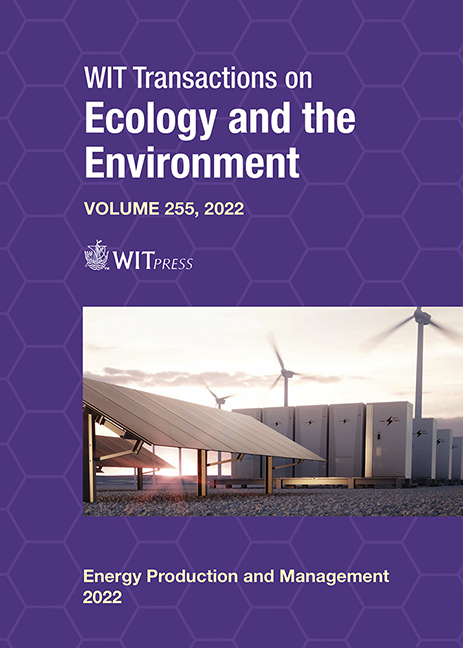ANALYSIS OF THE WATER–ENERGY–FOOD NEXUS AND ITS CONTRIBUTION TO ENERGY DEVELOPMENT
Price
Free (open access)
Transaction
Volume
255
Pages
11
Page Range
81 - 91
Published
2022
Paper DOI
10.2495/EPM220071
Copyright
Author(s)
GRICELDA HERRERA-FRANCO, HARRY ALBERTO BOLLMANN, JANAINA CAMILE PASQUAL LOFHAGEN, CARLOS MORA-FRANK
Abstract
The global energy system is moving towards a sustainable future with new development strategies that reduce the carbon footprint, such as the water–energy–food (WEF) nexus. Several countries have implemented this link to provide energy and food security while maintaining the relationship between socio-economic progress and environmental protection. The WEF nexus with energy development generates new interest in innovation, and it is important to explore the growth of this academic field. The work aims to analyse the scientific development of the WEF nexus during energy intervention processes, through bibliometric review models, for the knowledge of strategies in a bioenergy framework. The methodology consists of: (i) information compilation (Scopus and Web of Science) and software selection; (ii) information review on scientific production, author keywords and countries; and (iii) focus group analysis in a framework of energy development. The results show scientific interest from 2007, with exponential growth from 2016. The literature presents the interest of implementing the WEF nexus in energy processes to reduce environmental pollution, like ethanol in gasoline, biorefineries, sustainable agriculture, hydropower, and renewable energies (solar, wind). This scientific approach is dominated by the USA, China and the United Kingdom in environmental science, energy and engineering areas, accounting for 60% of the production. The study shows that the WEF nexus approach to energy developments creates new prospects for decision-making in socio-economic, political, and environmental progress.
Keywords
WEF nexus, bioenergy, sustainability, bibliometric analysis





